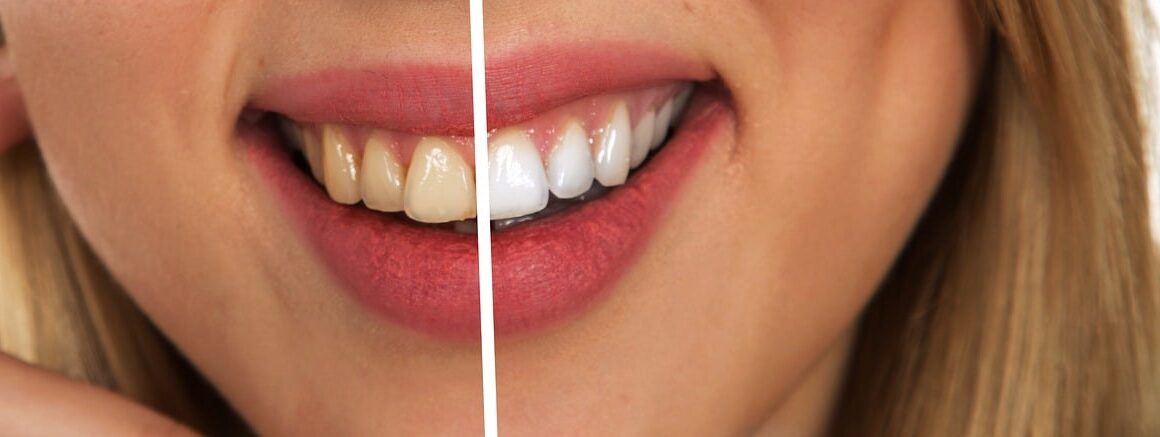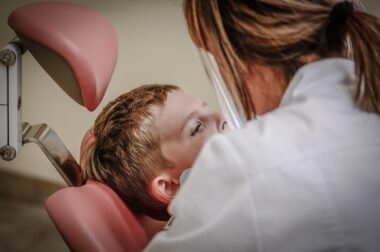How Often Should You Brush Your Dog’s Teeth?
Maintaining your dog’s dental health is essential for their overall well-being. Regular brushing is a key practice that contributes significantly to preventing dental diseases. Dogs, unlike humans, require specific dental care routines tailored to their needs. The first step in promoting good oral hygiene involves determining an appropriate brushing schedule. Many pet owners wonder how often they should brush their dog’s teeth. Ideally, it should be done daily to ensure optimal results. Situationally, owners can adjust this frequency based on their dog’s specific requirements and health status. Regular brushing removes plaque, which, if left unaddressed, can lead to tartar buildup and gum disease. Most dogs will grow accustomed to the brushing routine with time, perceiving it as a normal part of their care. When initiating a routine, using dog-friendly toothpaste and a suitable toothbrush is vital. Additionally, creating positive associations for your dog during brushing can make the process smoother. For instance, providing treats afterwards can motivate compliance, reducing anxiety during the session. Remember, consistency is vital in achieving lasting results in your dog’s oral health.
Implementing the appropriate dental care timeline requires awareness of symptoms or issues. Look for signs such as bad breath, excessive drooling, or difficulty eating, which may indicate dental problems. If such symptoms arise, consult your veterinarian for specific advice. They may recommend more frequent brushing or professional cleanings in more severe cases. Alongside daily brushing, incorporating dental treats and toys can further enhance your dog’s dental care routine. These additional tools help in managing plaque and promoting safe chewing activities. It’s also crucial to select dental hygiene products designed for dogs, as human products can harm their health. Monitoring your dog’s dental hygiene isn’t solely about reducing bad breath; it’s also about fostering a healthier lifestyle. Research shows that dogs with better dental hygiene often have higher energy levels and remarkable health overall. By embracing these habits and enriching their dental care, you ultimately contribute to a happier, longer life for your pet. Additionally, routine check-ups at the vet will help catch potential issues early, ensuring your dog stays in prime condition. This holistic approach is essential for your pet’s happiness and well-being.
Part of your dog’s dental care plan should involve education regarding potential dental diseases prevalent in dogs. Some common conditions include gingivitis, periodontitis, and tooth loss, each caused by neglecting dental hygiene. Brushing helps combat these issues, reducing plaque and harmful bacteria. Owners must arm themselves with knowledge concerning their dog’s dental health risks. Besides brushing, consider additional treatments, such as dental cleanings performed by professionals. These cleanings offer thorough care that homeowners may not provide at home. For some dogs, especially older or breeds prone to dental problems, dental cleanings may be necessary twice a year. Furthermore, keeping your home stocked with dental chews or water additives can also improve their oral health. Creating a consistent dental care schedule integrates both home brushings and veterinary visits. This structured approach not only mitigates health risks but also promotes a carefree experience for your pet. Adjustments may be needed based on your dog’s reactions and health; be patient as you find the right plan. Ultimately, protecting their teeth will nurture a robust bond between you and your furry companion.
Educating yourself about dog dental care can significantly impact your dog’s lifetime health. High-quality dental care is about more than just brushing; it incorporates diet and lifestyle factors too. Feeding your dog high-quality, dry kibble promotes better dental health due to its abrasive texture, helping to scrub away food particles. Caloric content and nutritional value should originate from vet-recommended sources. Ensuring your dog maintains a healthy weight will reduce stress on their teeth and bodies overall. In addition, regular exercise keeps their bodies active and promotes healthier gums. Combining proper veterinary visits and quality at-home care optimizes dental health outcomes. Furthermore, be observant of changes in your dog’s behavior during feeding times or when interacting with their mouth. These minor signs can provide insights regarding their dental condition. Besides brushing and monitoring, choosing the right toys is crucial. Avoid hard toys that could fracture their teeth; opt for softer options designed for dental health. In doing so, you help protect their smiles while allowing them to enjoy playtime as well.
Understanding the Benefits of Regular Dental Care
Implementing and maintaining a dog dental care routine provides a multitude of benefits essential to your pet’s well-being. Just as in humans, consistent dental care can lead to healthier gums and cleaner teeth. Practicing good dental hygiene reduces the likelihood of developing serious conditions such as periodontal disease. This disease not only affects a dog’s mouth, but it can lead to systemic health issues involving their heart, kidneys, and liver. Investing time in your dog’s dental care can ultimately save both time and money in the long run. The expense of treating advanced dental disease far exceeds the costs of toothpaste and toothbrushes used at home. For many dog owners, it’s crucial to recognize that preventative care is the most effective strategy. Moreover, a well-maintained dental routine strengthens the bond you share with your dog. Engaging in this practice can lead to increased trust and relaxation during care sessions, creating a more fulfilling experience for both sides. Therefore, establishing clear routines around dental care ensures mutual benefit; your dog becomes healthier, and you foster closer companionship.
Brushing your dog’s teeth can seem overwhelming initially, but gradually building this habit yields notable improvements. Every small change and effort counts toward your dog’s longevity and happiness. If you encounter resistance during brushing sessions, consult your veterinarian for tailored tips adapted for your pet’s temperament. Addressing negative reactions early on will prevent long-term aversions. To ease this process, introduce grooming activities in a positive manner; this helps your dog associate your approaches with pleasant experiences. As the bond between you and your dog strengthens, the effective exchange will reflect on their dental health. Encouraging open communication with your vet provides both you and your dog the best chances for success. If necessary, ask for help in creating a comprehensive dental care plan that encompasses every aspect of your dog’s health. Research shows that dog owners who prioritize their pet’s dental hygiene often see remarkable behavioral improvements and overall happiness. In addition, staying informed about new dental care products can help refine your approach. These little adaptations, combined, lead to transformative results over time, ensuring your dog remains happy and healthy.
Conclusion: Your Dog Deserves the Best
In conclusion, the significance of brushing your dog’s teeth cannot be overstated. By adhering to your developed schedule alongside seeking professional advice, you can positively influence your dog’s quality of life. Regular dental care becomes not only a necessity for physical health but also enhances emotional well-being through trust and comfort. Be proactive in taking care of their dental hygiene and engage in open learning about available resources. Dental care is an ongoing commitment; equipping yourself with knowledge fosters a nurturing environment for your furry friend. Create a regimen that is not solely focused on brushing but includes nutritious food and appropriate chew toys, ensuring comprehensive care. The overall success of your dog’s dental health greatly depends on your commitment and effort. It is essential to remember that each dog is unique, and adjustments may need to be made along your journey. Rewarding your dog for cooperation during brushing can make this experience enjoyable. Furthermore, involve your dog in their dental care journey, making it a shared undertaking born from love and respect.
Ultimately, brushing your dog’s teeth should become an integral part of your pet care routine. Pregnant dog owners should also familiarize themselves with canine dental health. A well-considered approach establishes lifelong dental habits, invaluable to both dogs and their loving owners. Prioritize your dog’s dental needs, and stay committed to implementing this integral part of care. Remember, a clean and health-conscious smile will reflect positively on your dog, transforming their happiness. Thus, nurturing strong dental habits early on fosters resilience and health benefits down the line. Your dog, a loyal companion, deserves the very best while navigating through life with you. Why not start today? Wrapping it all together, dental health is an essential priority that supports both your dog’s physical and emotional well-being. Explore further into dental care practices, which can provide insightful tips and guidance to elevate your experience. Moreover, becoming familiar with your dog’s dental health equips you to tackle any health concerns. Above all, your investment in your dog’s dental health directly correlates with a happy, loving, and joyous life filled with playful moments and cherished memories.





